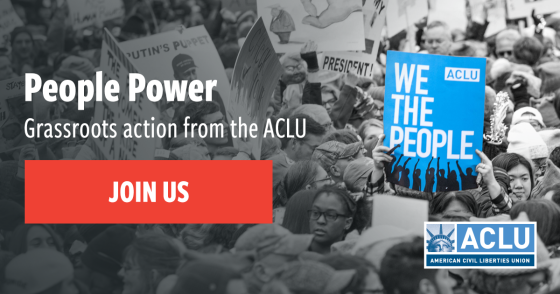LINCOLN, Neb. – A new poll commissioned by the ACLU of Nebraska shows broad consensus that Nebraska’s prison overcrowding emergency should be addressed by reducing the number of people in prison instead of building a new prison.
Among the takeaways:
- Without any provided context, 62% of respondents said it is important or very important “to reduce the number of people in prison in Nebraska today.” Once given basic information about Nebraska’s emergency level of prison overcrowding, the number jumped to 70%.
- 68% of respondents said they are concerned that “too much taxpayer money is being proposed to fund a private company building a prison in Nebraska.” This position was held by a majority of respondents among Republicans, Independents and Democrats.
- The vast majority of respondents expressed support of increased use of diversion programs. 91% of all respondents supported changes to the system to “send people with mental illnesses who commit non-violent crimes to treatment centers instead of prison and invest more in community-based mental health treatment programs to help people before they end up committing crimes.” Roughly three out of every four respondents supported use of young adult courts and drug courts.
- Underscoring the support for increased diversion and social services, 80% of respondents agreed that too much money is currently being “wasted locking up people in prisons and jails who should be receiving mental health or addiction services.”
Benenson Strategy Group, a market research firm that has Google, McDonald’s and Southwest Airlines among its clients, conducted the survey in July. It included 627 telephone and online interviews of registered voters across Nebraska who are likely to vote in the 2020 general election. The interviews coincided with the release of private companies’ responses to the Nebraska Department of Correctional Services’ request for information on building a new prison in Nebraska.
The poll’s release follows the Nebraska Department of Correctional Services’ 2021-2023 budget request, which includes funding for a high security housing expansion. NDCS Director Scott Frakes has previously said plans to seek construction of a new prison could be announced in September.
ACLU of Nebraska Executive Director Danielle Conrad says the poll paints a clear picture of Nebraskans’ criminal justice priorities.
“Nebraskans don’t want a new prison and they don’t like the status quo of overspending to fuel racial injustice and mass incarceration,” Conrad said. “But nothing about this is inevitable. There are proven solutions that have worked on the state and federal level; we’ve just lacked the political will and leadership to move on them. This poll is Nebraskans telling legislators and Gov. Ricketts that it’s time to stop trying to build our way out of the problem and get to work on criminal justice reform.”
Despite numerous construction projects over the past 40 years, Nebraska has not been able to build its way out of prison capacity problems and its prison system is among the most overcrowded in the nation.
The current state of mass incarceration disproportionately harms Black Nebraskans. While just five percent of Nebraskans are Black, nearly a third of all imprisoned Nebraskans are Black.
The poll also follows the release of the inspector general’s annual report on the Nebraska Department of Correctional Services, which raised concerns related to the ongoing racial disparities and noted “there would be many benefits related to reducing the population.”
Overcrowding persists despite a consistent increase in state funding. The OpenSky Policy Institute reports growth in state spending on corrections has outpaced growth in other major state funding areas and overall state budget growth, increasing an average of more than six percent a year for the last 20 years.
The ACLU of Nebraska advocates for smart justice reform, including sentencing reform, front-end diversion programs, increased prison programming and reentry support. If each reform in the ACLU’s Blueprint for Smart Justice was adopted, 3,000 fewer people would be in our prisons and Nebraska taxpayers would save an estimated $139 million annually.
